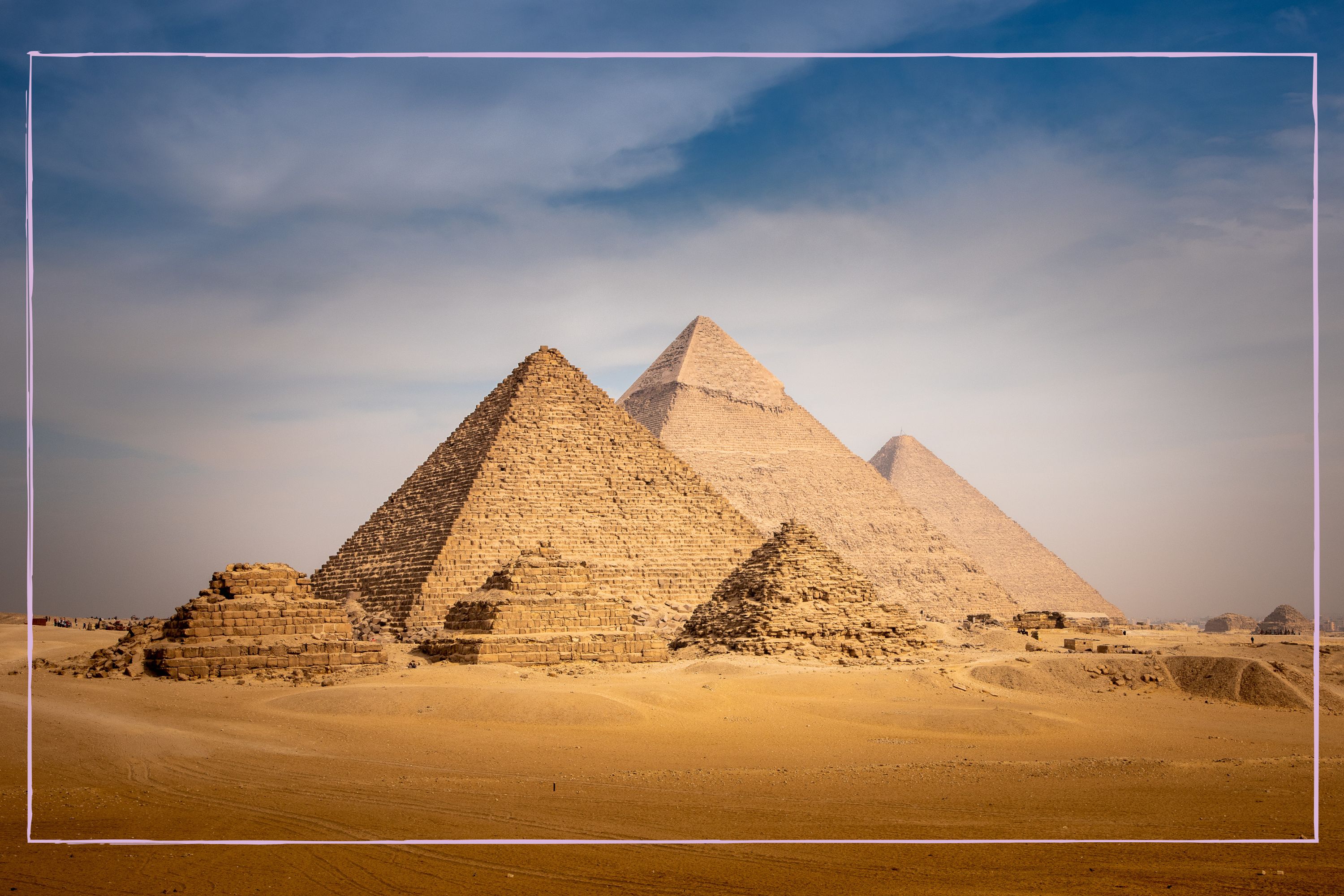Is this how The Pyramids were built? New study shares shocking discovery (it will blow kids’ minds)
Uncover one of the pasts biggest mysteries and inspire a future archeologist

Parenting advice, hot topics, best buys and family finance tips delivered straight to your inbox.
You are now subscribed
Your newsletter sign-up was successful
New data has revealed the possible answer to one of the biggest man-made mysteries; How were The Pyramids built? And it's a great fact to blow kids’, and parents', minds with.
Getting kids to open up and have a proper conversation with you, no matter their age, can be difficult. But by weaving in interesting facts and the answers to kid-friendly questions like 'why do pirates wear an eye patch?' and 'why do birds sing in the morning?', beginning those conversations can be a little bit easier - while teaching your child something interesting in the process.
Now, archaeologists have given us, arguably, the most interesting insight into the past to delight kids' love of learning and get them talking about history - and parents will want in on the details too.
Earlier this year, archaeologists released a new study that may have finally figured out how the pyramids, including the famous Giza complex, were built.
According to their research, there used to be a small river running close to where the pyramids were built. This waterway would allow the ancient Egyptians to easily transport the huge 10-tonne stones they used in pyramid building on boats.
The river, they believe, is a long-lost branch of the iconic River Nile, which dried up and has been buried beneath desert sands for thousands of years.
Speaking to the BBC, the study's lead author, Professor Eman Ghoneim said the findings back up an age-old theory many avid Egyptologists had. “Many of us who are interested in ancient Egypt are aware that the Egyptians must have used a waterway to build their enormous monuments," they said. "But nobody was certain of the location, the shape, the size, or proximity of this mega waterway to the pyramids site.”
Parenting advice, hot topics, best buys and family finance tips delivered straight to your inbox.
Their research has found that the river would have once been a bustling hub of activity, 64 kilometres long, around half a kilometre wide and at least 25 metres deep! However, a major drought around 4,200 years ago contributed to the river drying up, explaining why the Egyptians stopped building pyramids at that time.
Even if your child isn't interested in the world of ancient Egypt, the researchers' breakthrough is a great story itself that shows the importance of sticking with a project - it's taken centuries to figure out how the pyramids were built and they've finally pulled it off!
For your more avid geology fans and tech enthusiasts, Professor Ghoneim explained the 'radar sensor' technology they used to find the underground waterway, a technique that shows the interesting ways their 'boring' school lessons can be put to use in the real world.
They explained, "Unlike aerial photos or optical satellite sensors that image the land surface, radar sensors image the subsurface due to their unique ability to penetrate the sand surface and produce images of hidden features including buried rivers and ancient structures.”
Facts like these are great topics to keep kids engaged with learning over the school summer holidays. But if you're feeling stressed about keeping everyone occupied without school don't worry - one mum has revealed that it’s OK and shared how to embrace the joyful moments. Plus, here are 4 ways to help your teen handle boredom over the summer holidays.
Charlie Elizabeth Culverhouse is a news writer for Goodtoknow, specialising in family content. She began her freelance journalism career after graduating from Nottingham Trent University with an MA in Magazine Journalism, receiving an NCTJ diploma, and earning a First Class BA (Hons) in Journalism at the British and Irish Modern Music Institute. She has also worked with BBC Good Food and The Independent.